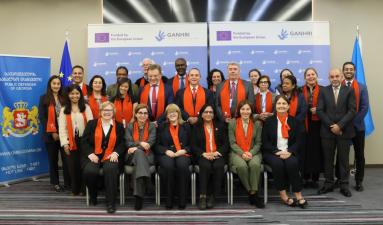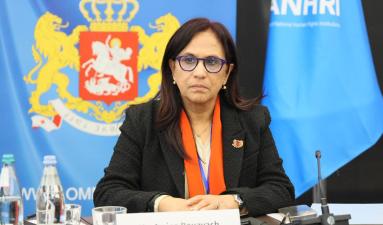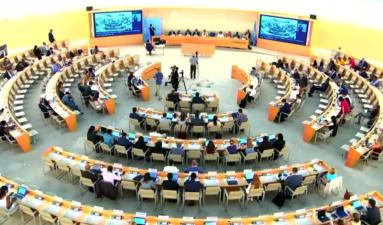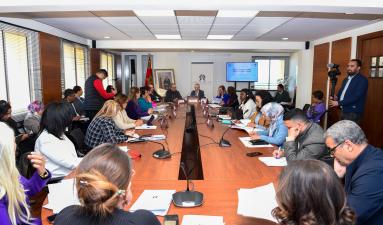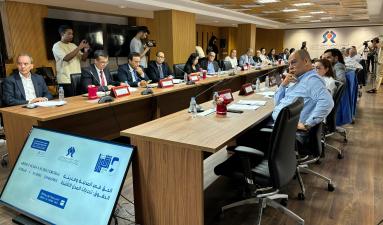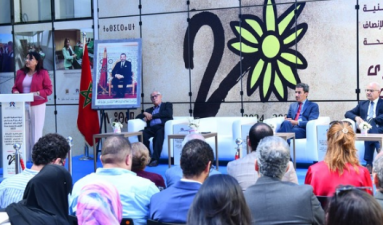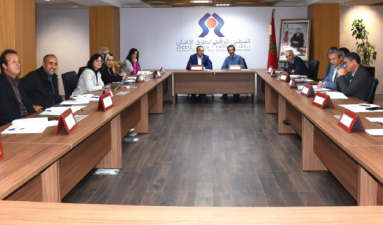The National Human Rights Council (CNDH) submitted its Memorandum on the new development model to the Special Committee on the Model of Development as part of its contribution to the national debate on the new trends of the development strategy.
Entitled: “The effectiveness of rights and freedoms in Morocco… For a new social contract”, this memorandum was elaborated based on Article 2 of Law 76.15 on the reorganization of the CNDH which stated that the Council shall deal with all matters relating to the defence and protection of human rights and freedoms, guarantee their enjoyment and promotion, and safeguard the dignity, rights and freedoms of citizens, collectively and individually, in strict compliance with the relevant national and universal benchmarks.
This memorandum provides elements on the CNDH’s perception of the development strategy aiming at making the effectiveness of rights and freedoms an essential input to guarantee the right to development and placing it at the heart of the strategic choices of Morocco in the coming stages. It also aims at interpreting the CNDH’s strategy of action which is based on the effectiveness of rights and freedoms as approved at its General Assembly held in September 2019.
As evidenced by the methodology utilized to develop this memorandum, its contents and the proposed recommendations, the CNDH adopts a comprehensive approach to the effectiveness of rights and freedoms. This approach does not only exhaust the effectiveness in its purely legal dimension relating to the implementation of laws, insofar as it does attach utmost importance to the non-legal factors whether those related to economic, social and political factors, or those related to culture, values and sustainability.
The memorandum explains that considering these factors in their overlapping and composition, as joint points of human rights and development, is the only guarantee of the right to development, as it is the first ultimate goal of the strategy of effectiveness of rights.
The second goal of this strategy, as defined in the memorandum, is reflected in the possible proposals in the process of eliminating territorial and social inequalities. These proposals contribute in enhancing the human rights dimensions of the intended new social contract, of which the new development model will be one of its manifestations.
Within this context, Mrs. Amina Bouayach, CNDH Chairperson, stresses that addressing imbalances restricting the effectiveness of rights and freedoms requires, mostly, the adoption of public policies with a concrete procedural nature and a measurable impact.
However, she adds, the ability of these policies and measures to achieve a deep and comprehensive change in setting respect for rights and freedoms as a starting point and a consequence of development choices at the same time, requires breaking with top-down approaches in dealing with these policies by establishing them on the basis of values’ system that govern relations among the various components of society.
The CNDH adopted a methodology based on identifying four major areas in developing this memorandum. These four areas focused on human rights and development to build the basis of a development model including the rights to development. They are related to: the values basis of the effectiveness of rights and freedoms; the need to re-prioritize to enhance access to fundamental rights; adopting development approach based on human rights; and finally the necessity to reshape the role of the State in promoting the effectiveness of rights and freedoms in the post-pandemic stage of COVID19.
The memorandum also provides an overview that identified obstacles to the effectiveness of human rights in Morocco. In this regard, five main elements are listed as follow: difficulties in interpreting the legal arsenal into actual guarantees to protect rights and freedoms; disparities in access to rights as a source of tensions; weak integration of human rights approach in development policies; limitation of values of democracy, citizenship and civil behaviour; and sustainability issues.
Based on the above diagnostic elements, the memorandum provides a perception of pillars proposed by the CNDH to build alternative development options. These pillars are based on the following five foundations: the effectiveness of rights as a condition to achieve citizenship and renew the social contract; the adoption of a proactive approach to protect and promote rights and freedoms; the awareness of the overlapping of human rights and development; and the basis of values for the effectiveness of rights as a necessity to establish a new social contract.
To be noted, the CNDH adopted a participatory and inclusive approach to elaborate this memorandum which was approved in its second General Assembly in March 2020. This approach is based on consultation and exchanging with actors, researchers, experts and human rights defenders. This memorandum is also the outcome of meetings held by different CNDH’s structures at local, regional and national levels to provide a vision of the new development model from the perspective of the effectiveness of rights and freedoms and the contribution to design a new social contract based on human rights.

